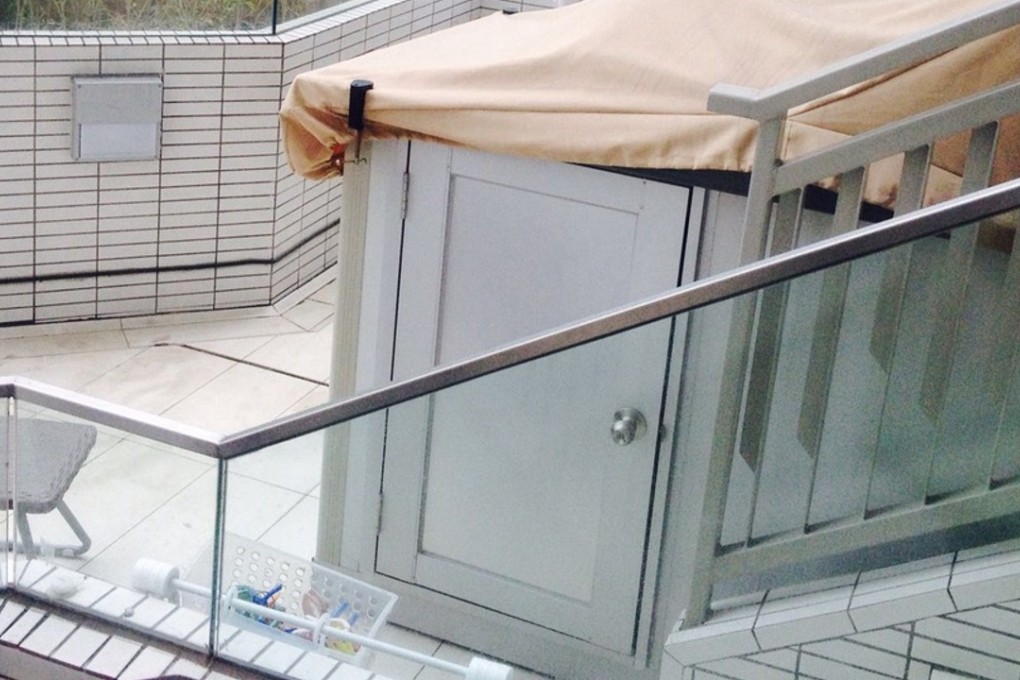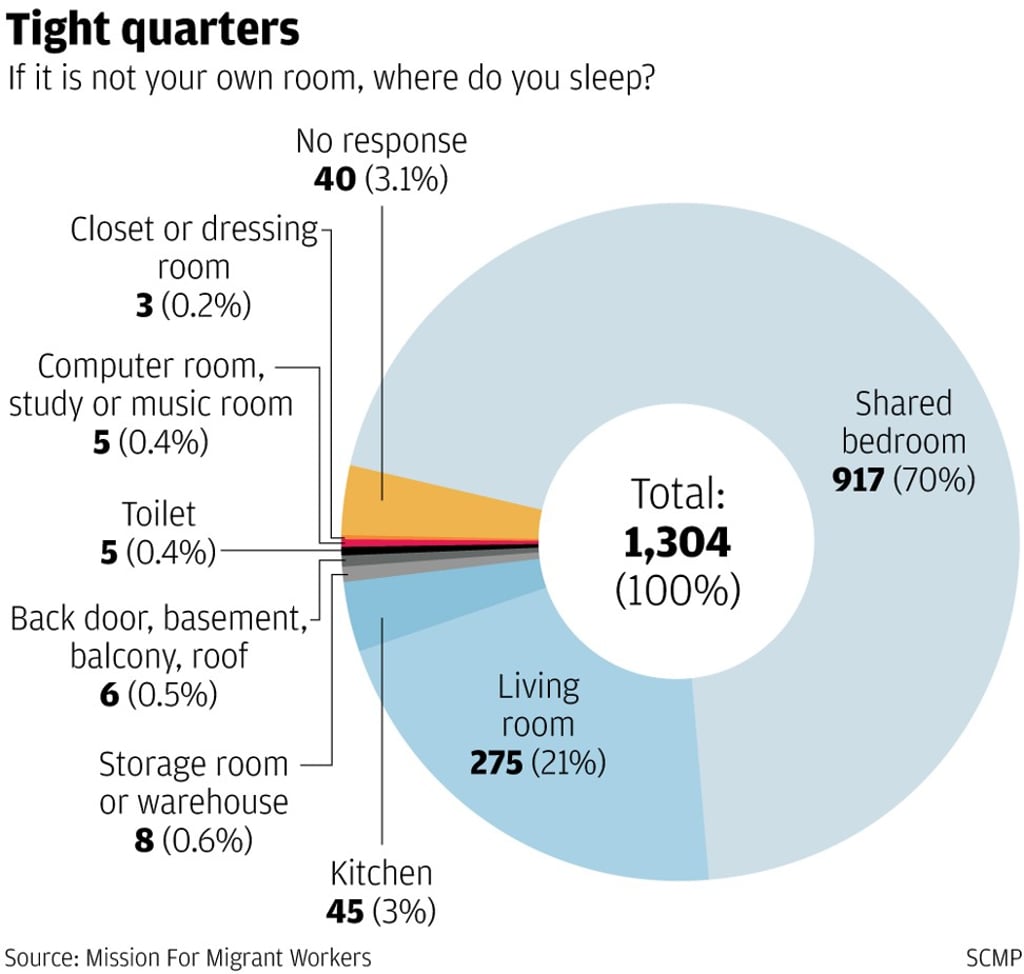Concern group urges action to protect foreign helpers in Hong Kong forced to sleep in toilets and kitchens
Mission For Migrant Workers says requirement for ‘suitable accommodation’ in their contracts is too vague and open to abuse

A concern group has urged the Hong Kong government to draw up a proper list of “suitable accommodation” for domestic helpers after a survey found many had to sleep in store rooms, balconies, kitchens and even toilets.
The Mission For Migrant Workers questioned more than 3,000 Filipino and Indonesian helpers last year and found widespread accommodation problems, which it said were also unhealthy.
It called on the government to ban the worst conditions, such as sleeping in their employers’ toilets and kitchens, in the contract for domestic workers.
“This is basic human decency. We believe currently the standard employment contract gives too much room for interpretation and misinterpretation,” said Norman Uy Carnay, programme officer at the mission and lead researcher of the report.
While employers are required to provide helpers with “suitable and furnished accommodation” and “reasonable privacy” under the ordinance, only two examples are listed as “unsuitable accommodation”. These are “made-do beds in the corridor with little privacy” and “sharing a room with an adult/teenager of the opposite sex”.
